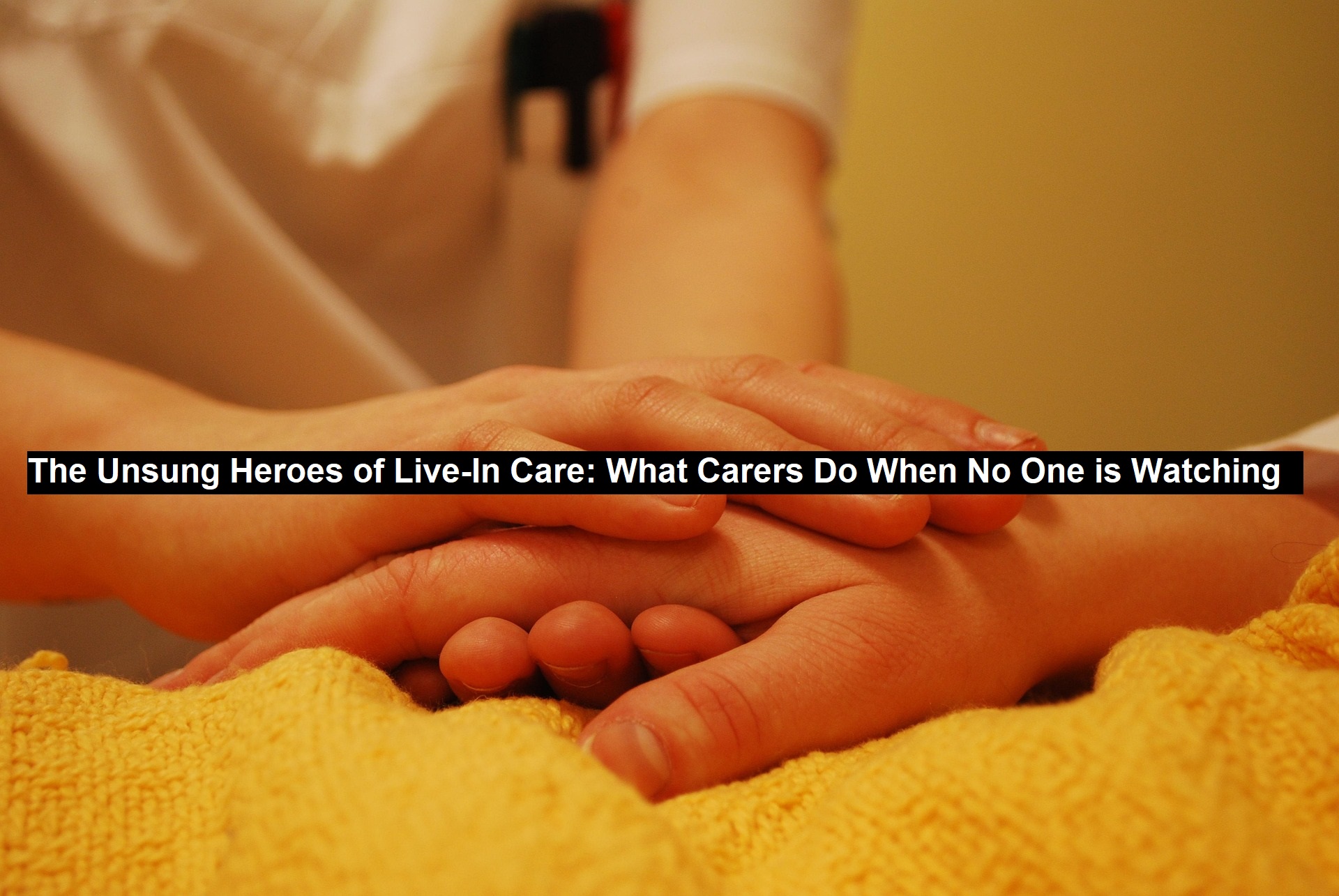Live-in carers play a role in supporting individuals who require constant care. Their responsibilities extend far beyond the visible daily routines. They provide practical assistance, emotional support, companionship, and peace of mind to families. But what occurs behind the scenes? What do carers do when no one is observing?
This blog celebrates the selflessness, dedication, and compassion of live-in carers who often go unnoticed but make a significant difference in the lives of those they serve.
The Round-the-Clock Commitment
A live-in carer’s responsibilities do not end when the family goes to bed, or the client falls asleep. They are always alert and ready to assist if the client wakes during the night or requires medical attention. This may involve responding to an alarm, providing comfort during restless nights, or ensuring that medications are taken on time. Live-in carers deliver continuous care around the clock.
Celebrating the Unseen Efforts
Recognition can extend beyond mere words; it can manifest in tangible ways that reflect appreciation for a carer’s dedication. Families might consider creating a supportive environment by acknowledging the little things that carers do daily, such as planning meals or fostering a comforting atmosphere.
Invitations to family gatherings or including carers in holiday celebrations can help bridge the emotional gap and reinforce their importance in the family unit. Such gestures promote a sense of belonging and help carers feel valued as essential members of the team caring for their loved ones. By fostering a culture of appreciation and respect, families not only uplift carers but contribute to a more harmonious caregiving environment, benefiting both the client and the carer.
While this level of vigilance may not be explicitly stated in a job description, it is a reality that they accept and embrace every day.
Read: Why Gen Z is the Driving Force Behind Beauty’s Biggest Shifts
Small Acts of Kindness That Go Unnoticed
While live-in carers are responsible for tasks like preparing meals and administering medication, they often go above and beyond in ways that may not be recognised. Here are some of the additional efforts they make:
- Maintaining a Pleasant Environment: They tidy up after meals, ensure that rooms are clean and cosy, and handle minor repairs to create a safe home environment.
- Anticipating Needs: Live-in carers stock up on favourite snacks, organise family photos for reminiscing, and lay out extra blankets to prepare for unexpected weather changes.
- Providing Comfort: They offer comfort by adjusting pillows for better sleep or reading a favourite book aloud. These small gestures can bring immense relief and comfort.
Emotional Support: The Silent Backbone
For many individuals, live-in carers become trusted confidants and companions. They listen attentively, share a laugh, or simply provide companionship during difficult moments. Although this emotional support often goes unnoticed, it is a part of the carer-client relationship.
When family members are unable to be present, carers fill that gap, offering reassurance and a sense of stability. This bond not only enhances the client’s quality of life and alleviates the family’s worries, knowing their loved one is in compassionate hands.
Monitoring Health Without Being Asked
Carers are attuned to subtle changes in their clients’ health and well-being. They often:
- Track Symptoms: Monitor small changes in appetite, energy levels, or mood that may indicate a more serious issue.
- Prevent Escalation: Recognise early signs of infections, bedsores, or other health concerns and take proactive steps to address them.
- Advocate for Clients: Communicate with doctors or family members regarding medical needs or changes in care requirements.
Their vigilance can prevent hospital visits and improve long-term outcomes.
Maintaining Boundaries While Building Bonds
Being a live-in carer involves balancing professionalism and genuine care. Carers must build trust and rapport with their clients while maintaining clear boundaries to ensure respect and dignity.
When no one is watching, this might mean quietly stepping away to give their client space or discreetly handling a sensitive situation to protect the client’s privacy.
Patience and Resilience
Live-in care requires immense patience, especially when caring for individuals with conditions such as dementia or Parkinson’s disease. Carers may need to:
- Repeat Instructions: Calmly answer the same questions multiple times a day.
- De-escalate Stress: Use gentle techniques to soothe agitation or confusion.
- Adapt Quickly: Respond flexibly to changes in routine or behaviour.
These challenges demand emotional strength and resilience, qualities that carers demonstrate every day.
Self-Care: The Invisible Struggle
One of the hidden realities of live-in care is the challenge of maintaining personal well-being. Many carers prioritise their client’s needs over their own, often resulting in sacrifices in several areas:
- Sleep: Being on call 24/7 can lead to disrupted rest.
- Social Connections: The nature of live-in work can feel isolating.
- Personal Time: Days off are often spent recovering rather than engaging in personal interests.
Despite these challenges, carers find fulfilment in knowing that their work significantly impacts someone else’s life.
Why Recognition Matters
Live-in carers often do not seek recognition for their efforts, but acknowledging their hard work can make a significant difference. A simple “thanks” or a thoughtful gesture from family members can affirm their value and boost their morale.
Families can also support carers by:
- Providing regular breaks and time off.
- Offering emotional support through check-ins and open communication.
- Ensuring they have access to the resources and tools necessary to perform their roles effectively.
A Heartfelt Tribute
Live-in carers exemplify compassion, dedication, and resilience. Their work often goes unnoticed, yet the impact they have on those they care for and their families is profound. They are unsung heroes who truly deserve our respect and gratitude.
If you know a live-in carer, take a moment to acknowledge their efforts. Your support can mean the world to them, whether it’s with a kind word, a small token of appreciation, or simply by listening to their experiences.
Get the Support You Need Right at Home
Are you or a loved one considering live in care? Explore how dedicated carers can positively impact your family’s life.



